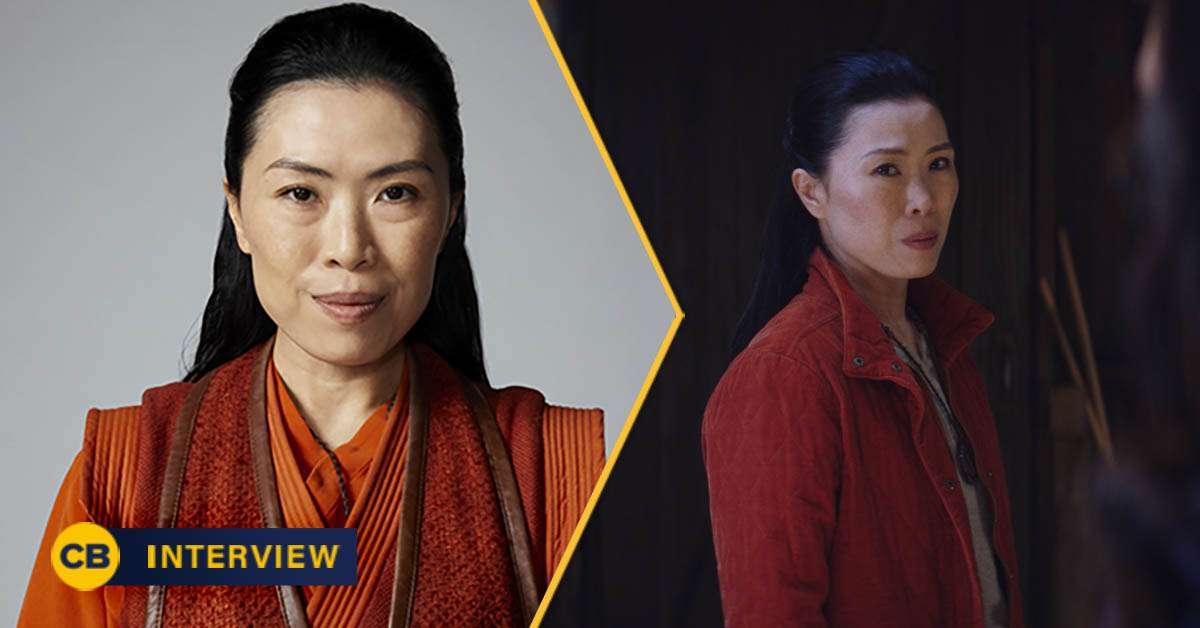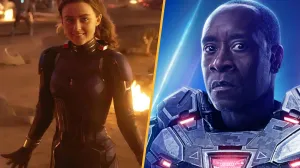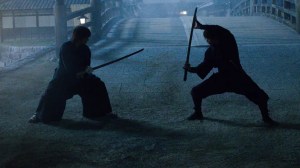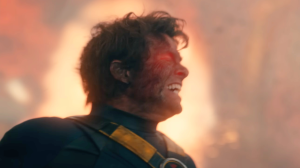Kung Fu returns from its midseason break this week, revealing not only Nicky’s (Olivia Liang) fate after her intense encounter with Zhilan (Yvonne Chapman), but also takes the viewer deeper into the story of a character who is critical to Nicky’s journey, but a bit of a mystery to everyone: Nicky’s beloved shifu, Pei-Ling. After Zhilan’s shocking allegation that Pei-Ling murdered their father, even Nicky questions exactly who Pei-Ling really was and what the episode reveals about Pei-Ling, Zhilan, and their family’s story will have major implications going forward.
Videos by ComicBook.com
Warning: spoilers for this week’s episode of Kung Fu, “Guidance”, below.
In “Guidance”, viewers get Pei-Ling’s origin story, taking viewers back to the fateful moment where her relationship with Zhilan was forever altered thanks to the accidental death of their father and the choice Pei-Ling made in response to it. The heartbreaking episode also packed another emotional punch, revealing that Nicky is a descendant of the sword’s owner. With Pei-Ling’s family being the guardians of the sword and Nicky the rightful bearer of it, it’s a stunning twist with major implications. ComicBook.com recently sat down and chatted with Vanessa Kai who plays Pei-Ling about the powerful episode, the complexity of Pei-Ling as a character, and how that big reveal impacts things.

ComicBook.com: One of the things I really love about Kung Fu is that there are so many beautiful, rich stories being told and we’ve got the family element, but this week’s episode is different and very centered on your character’s history. We see a very different side of her. How do you feel the family dynamic that we see from Pei-Ling’s early life shaped her into the woman that she becomes, the woman who ends up being who Nikki needs at that time in her life?
Vanessa Kai: I think that the family dynamic, you know, I feel like sometimes wisdom is hard learned. And I think a part of Pei-Ling’s character being in Nicki’s life as her mentor, as her teacher is to sort of help her learn from those lessons, maybe it was painfully. I think the to see her, a lot of herself, Pei-Ling sees a lot of herself in Nicky. And I think that speaks a lot to how we see all mentors really, in the hope that they can make the lessons we learn in life a little easier.
And I think that Pei-Ling’s family, part of her lessons it’s just the difficult choices that she needed to make. She saw something that was bigger than herself, bigger than her family. And what happened with her father and all of that was a huge accident and also she was so young but it also shows that she too has flaws, that she too is human. And I think that hopefully, as we all get older, to be a little bit more forgiving of ourselves and to know that our mistakes do not define us.
In terms of that very difficult situation for Pei-Ling, in the episode, we see the sword and the family dynamic and the history and how it goes very deep for Pei-Ling and also the conflict with Zhilan. On the surface, it looks like Pei-Ling chooses the sword over her family. What do you feel motivated Pei-Ling’s decision there? Was she thinking about family, do you think she was thinking about the bigger picture, or was she just kind of a scared kid making a choice?
I think she was a scared kid. I think she was making a choice. I think I should also share that our really wonderful showrunners Christina Kim and Robert Berens, they had offered me the privilege of informing me of Pei-Ling’s backstory so I already had some insight of what was to come. And so that has been a huge building block of foundation of creating Pei-Ling. But they also gave me some insight of what would motivate her to leave so quickly and abandon and I think that one of those things is also, it’s a small village. That decision isn’t something that she would be able to be forgiven for by the people in her village.
I think as someone so young, as a woman who did not have a lot of means and resources, I think that she just did the best she could and she certainly did want to take responsibility for her sister and to beg her to join her. She also had a very strong tie with her mother and it’s a relationship that Zhilan, unfortunately, did not have. So she did not learn the lessons or her legacy or her birthright and the responsibility of what that entailed. So, I think for Pei Ling, the young Pei Ling, to feel that weight, that sense of responsibility, I felt like that’s what urged her on and she did the best she could.
The episode also has a really massive reveal about Nicky and her place in the larger story and how it dovetails with Pei-Ling’s story. There’s a big connection there. Do you feel like Nicky and Pei-Ling’s stories parallel one another and, also, did Pei-Ling have any clue about this aspect of Nicky?
How can I answer this? I think there’s a reason, like all boats are meant to cross, you know. And I do think that is something that everyone is going to have to stay tuned to watch for. But yeah, I do think that ultimately Pei-Ling saw something in Nicky, whatever that may be, think it was enough for her to take her under her wing. Especially Nicky. Pei-Ling saw something special and wanted to nurture that and also to see where it would lead her.
When I spoke with Yvonne Chapman about Zhilan’s story we spoke about how Zhilan is our villain, but she’s also not really a villain, she’s this well-rounded, kind of tragic character. One of the things this episode gives us is that Pei-Ling is also not perfect like sometimes those “wisdom” characters are presented as. What was it like for you as an actor to be able to create these characters and build this story that features fully fleshed-out characters that aren’t one note?
I first have to say that it is delicious. And it really is, it’s an honor and a privilege to play Pei Ling. And I feel like it’s a huge testament to the writers, the showrunner and certainly Christina and Robert Berens and also to the writers, Ryan Johnson Peter Lalaynis. To play a character that actually is flawed, that she has dimension to her, I think that there is something to be said about everyone’s origin story and that we should always question what motivates us, why we do what we do. How do we get there?
And I think that there’s something to be said about humanizing the people that we perhaps look up to and that the more we learn how layered are the people that we love, the more that perhaps we are better at forgiving ourselves in our journey as we go through life. And I think that to play this character, who has all these layers, I think it’s just truly a privilege. It really is. I don’t take it lightly, either.
This interview has been lightly edited for length and clarity.








